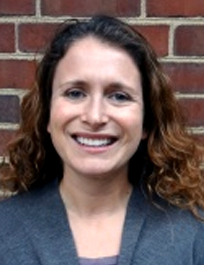Teaching Innovations at Vanderbilt: Sarah Suiter and Engaging Community Partners
By Faith Rovenolt, CFT undergraduate intern
On Vanderbilt’s campus, it’s easy to forget that there exists a world outside of it. But all around us is Nashville, a bright, bustling city that’s one of the fastest-growing ones in the U.S.A. And as Sarah Suiter is showing, it’s filled with opportunities for students to engage with community partners.
 Sarah Suiter, an Assistant Professor of the Practice in Peabody’s Department of Human and Organizational Development, teaches Program Evaluation. Masters students from various departments, from Health Policy to Child Studies, sign up for the course to learn how to evaluate the efficacy of an intervention, such as an after-school tutoring program. When she first taught the course, Suiter assigned the whole class to one large project but found that that was just too many people working on a single program. So, she reached out to local non-profits and public-sector programs who had a program that they needed to evaluate but lacked the resources to do so.
Sarah Suiter, an Assistant Professor of the Practice in Peabody’s Department of Human and Organizational Development, teaches Program Evaluation. Masters students from various departments, from Health Policy to Child Studies, sign up for the course to learn how to evaluate the efficacy of an intervention, such as an after-school tutoring program. When she first taught the course, Suiter assigned the whole class to one large project but found that that was just too many people working on a single program. So, she reached out to local non-profits and public-sector programs who had a program that they needed to evaluate but lacked the resources to do so.
Suiter has had an overwhelming response from community partners. For each community partner, she assigns a group of students who develop a program evaluation plan across the course of the semester, directly translating concepts learned in the class into their plan. Importantly, the community partner is an active part of this process, with a representative attending classes and helping ensure that the plan that the students develop is a good fit for their organization. At the end of the class, the community partner leaves with a fully developed, ready-to-implement evaluation plan. While the implementation is not part of the course and not all of the organizations go on to use their evaluation plans, many do. In fact, some students stay in touch with the community partners they worked with and go on to help them implement the plans they designed, either as volunteers for or employees of the organization. Past and current community partners include The FIND Design, The Nashville Food Project, and Gideon’s Army.
Working with community partners gives students real-life experience and soft skills and is a great example of a “Students as Producers” project embedded in a course. These kinds of projects tend to be highly meaningful to students because they provide an opportunity to tackle an open-ended problem with some autonomy for a real purpose. In this case, students get to see the implications of their work while forming network connections with the Nashville community. The community partners directly benefit as well and they also receive a small stipend as compensation for their time through funding from the Meharry-Vanderbilt Community Engaged Research Core (CERC).
Feedback from both students and community partners has been positive. Students enjoy working on a real project as well as with each other and the community partners, and community partners gain tools to help their organization. Part of the program’s success is because Suiter:
- makes the time requirement and high expectations of the course to the volunteer community partners very clear
- figures out up front the benefits to both students and community partners
- matches interests of students to community partners
Program evaluation is a course that naturally lends itself to working with community partners thanks to the external motivation of organizations to evaluate their programs. However, for other classes looking to work with Nashville organizations that might not be able to offer community partners tangible products, Suiter still sees an opportunity for collaboration. Community partners have told Suiter, they appreciate working with Vanderbilt classes as it provides them “space and time to think and learn.” The conversations between Vanderbilt and Nashville are worth it, both for students and the community.
Learn more about the course and its outcomes in Suiter’s article “A Co-Learning Model for Community-Engaged Program Evaluation.”

Leave a Response